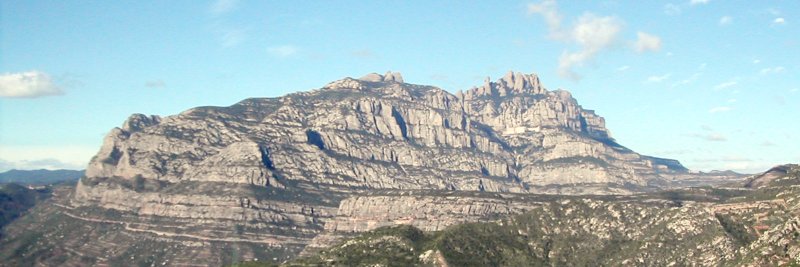! #ManuelCastells' book "Communication Power" (2009/2014) is fascinating. See
https://journals.sagepub.com/doi/pdf/10.1177/0163443710379951 …
"Book Reviews: Manuel Castells, Communication Power. Oxford: Oxford University Press" by Paschal Preston, 11/22/10 > #NetworkSociety https://wiki.worlduniversityandschool.org/wiki/Network_Society … @WorldUnivAndSch ~
! #ManuelCastells' book "Communication Power" (2009/2014) is fascinating. See https://t.co/hiHQtm15DK— Languages-World Univ (@sgkmacleod) July 3, 2019
"Book Reviews: Manuel Castells, Communication Power. Oxford: Oxford University Press" by Paschal Preston, 11/22/10 >#NetworkSociety https://t.co/vzGMqHCRdm @WorldUnivAndSch ~
https://twitter.com/scottmacleod/status/1146437194921336832
https://twitter.com/sgkmacleod/status/1146437567379730434
*
Will engage some of this in the course I teach:
Society, Information Technology,
and the Global University ~
http://worlduniversityandschool.org/InfoTechNetworkSocGlobalUniv.html*
Manuel Castells was compared to Max Weber by LSE's Anthony Giddens, and Karl Marx by the Wall Street Journal in his theorizing of the information age:
http://globetrotter.berkeley.edu/people/Castells/castells-con0.html -
"His publications include a three-volume trilogy on the Information Age: Volume I: The Rise of the Network Society; Volume II: The Power of Identity, and Volume III: End of Millennium. Anthony Giddens, Director of the London School of Economics, wrote in a review of the trilogy, "It would not be fanciful to compare the work to Max Weber's Economy in Society." And G.P. Zachary, writing in the Wall Street Journal, wrote, "Adam Smith explained how capitalism worked and Karl Marx explained why it didn't. Now the social and economic relations of the Information Age have been captured by Manual Castells." "
* *
"Communication Power" (2009 / 2013) by Manuel Castells' notes
"Communication Power" notes
Digital Networks and the Culture of the Autonomy: Introduction to the 2013 Edition
The core argument presented in this book is that power relationships, the foundation of the institutions that organize society, are largely constructed in people's minds through communication processes. ix
The transformation of communication in the digital age
ix
" ... most important communication transformation ... shift of mass communication to mass self-communication, mass self-communication being the process of interactive communication that can potentially reach a mass audience, but in which the production of the message is self-generated, the retrieval of messages is self-directed, and the reception and remixing of content from electronic communication networks is self-selected." ix
Predicting the recent past
xxiii
Internet and the culture of freedom
xxvi
The fast diffusion of the Internet from the mid-1990s onwards resulted from a combination of three factors:
1) The technological discovery of the World Wide Web by Tim Berners-Lee and his willingness to distribute the source code in order to improve it through the open source contribution of a global community of users, in continuity with the openness of the TCP/IP Internet protocols designed in 1973-75 by Vint Cerf and Robert Kahn. The Web keeps running under the same principle of open source. In fact, two-thirds of web servers are operated by Apache, an open source program operated by a free community of programmers.
2) Institutional change in the management of the Internet, keeping it under the loose management of the global Internet community but privatizing it, and allowing both commercial uses and cooperative uses.
3) Major changes in culture and social behavior: individuation and networking.
xxvii
The construction of autonomy in the Internet age
xxix
The key for the process of individuation is the construction of autonomy by social actors, who become subjects in the process.
WikiLeaks and the control of information
xxxiii
Internet and networked social movements
xxxviii
Networked social movements and political change
xliii
A communication theory of power and social change
xlv
The technology and morphology of these communication networks shape the process of mobilization, and thus of social change, both as a process and as an outcome. The rise of digital communication networks as the prevalent form of meditated human interaction provides the new context, at the core of the network society as a new social structure. in which the social movements of the twenty-first century are being formed. And the project of the book you have in your hands, "Communication Power," is to provide the grounded theoretical framework to understand the avenues of social and political change in our time - a hypothetical framework that has to be contrasted with, and eventually rectified by historical experience as recorded by scholarly research.
xlvi - xlvii
Opening
I was eighteen years old. My urge for freedom was bumping against the walls that the dictator had erected around life.
1
Chapter 1
Power in the Network Society
What is Power?
Power is the most fundamental process in society, since society is designed around values and institutions, and what is valued and institutionalized defined by power relationships.
Power is the relational capacity that enables a social actor to influence asymmetrically the decisions of other social actor(s) in ways that favor the empowered actor's will, interests, and values.
* * *
Here's a recent WUaS Live Hangout on Air I did which touches on related themes and ideas:
World Univ & Sch Live Hangout on Air, News, Updates 7/1/19
https://youtu.be/enCmBGvctrs
--
- Scott MacLeod - Founder, President & Professor
- World University and School
- 415 480 4577
- CC World University and School - like CC Wikipedia with best STEM-centric CC OpenCourseWare - incorporated as a nonprofit university and school in California, and is a U.S. 501 (c) (3) tax-exempt educational organization.
*
About yesterday's big 6.4 earthquake in California from Stanford Earth: "Can AI help researchers predict #aftershocks?" https://twitter.com/StanfordEarth/status/1147216777509625856 How will this play out in #RealisticVirtualEarth at cell & atomic levels with machine learning? #earthquake > https://wiki.worlduniversityandschool.org/wiki/Geology_and_Geophysics ~
About yesterday's big 6.4 earthquake in California from Stanford Earth: "Can AI help researchers predict #aftershocks?" https://t.co/yJfJivrKdE How will this play out in #RealisticVirtualEarth at cell & atomic levels with machine learning? #earthquake > https://t.co/eLJauEXb7z ~— WorldUnivandSch (@WorldUnivAndSch) July 5, 2019
https://twitter.com/WorldUnivAndSch/status/1147219215323000832
*
...







No comments:
Post a Comment